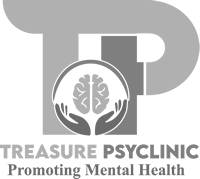 Psychometric assessments are structured tools designed to measure psychological attributes such as cognitive abilities, personality traits, emotional intelligence, and various skills. These assessments provide objective data that can be used in clinical settings, educational environments, and organizational contexts.
Psychometric assessments are structured tools designed to measure psychological attributes such as cognitive abilities, personality traits, emotional intelligence, and various skills. These assessments provide objective data that can be used in clinical settings, educational environments, and organizational contexts.
Key Components
Purpose
-
Assessment: Evaluate cognitive skills, personality characteristics, and emotional functioning.
-
Diagnosis: Aid in identifying mental health conditions, learning disabilities, or developmental disorders.
-
Career Development: Assist individuals in understanding their strengths and weaknesses for better career choices.
-
Research: Facilitate the study of psychological traits and behaviors in research settings.
Types of Assessments
-
Personality Tests: Measure traits like extraversion, agreeableness, and neuroticism. Examples include the Big Five Personality Test and the Myers-Briggs Type Indicator (MBTI).
-
Intelligence Tests: Assess general cognitive abilities, such as problem-solving and reasoning. Common tests include the Wechsler Adult Intelligence Scale (WAIS) and the Stanford-Binet Intelligence Scales.
-
Aptitude Tests: Evaluate specific skills, such as verbal, numerical, or spatial reasoning abilities. These are often used in educational and occupational settings.
-
Emotional Intelligence Tests: Measure the ability to recognize, understand, and manage one’s emotions and the emotions of others, like the Emotional Quotient Inventory (EQ-i).
Purpose
-
Evaluation: To assess cognitive abilities, personality traits, and emotional strengths or challenges.
-
Diagnosis: To aid in diagnosing mental health conditions or learning disabilities.
-
Career Guidance: To assist individuals in understanding their strengths and preferences for better career choices.Research: Used in psychological research to study various aspects of human behavior.
Process
-
Administration: Typically conducted in a controlled environment, either in-person or online. The assessments can involve multiple-choice questions, situational judgment scenarios, or self-report questionnaires.
-
Scoring: Results are scored according to standardized criteria, allowing for comparison against normative data.
-
Interpretation: A qualified professional interprets the results, providing insights and recommendations based on the findings.
Benefits
- Objective Data: Provides quantitative data that can complement qualitative assessments.
- Personal Insight: Helps individuals gain self-awareness and understand their strengths and weaknesses.
- Informed Decisions: Assists organizations in recruitment, training, and development by matching individuals to roles suited to their skills and personality.


